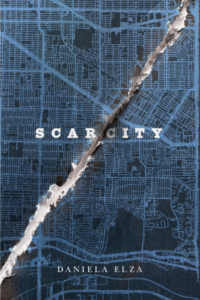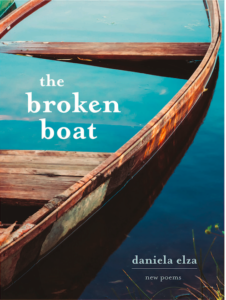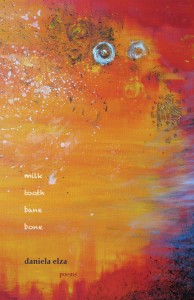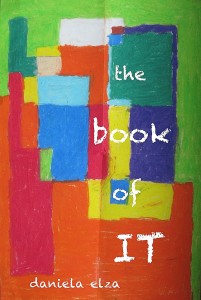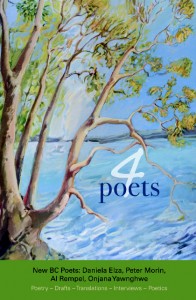poetry is not a project
Posted by Daniela Elza on Sep 08 2010
I quite enjoyed reading Dorothea Lasky‘s tiny, tiny, tiny book Poetry is not a Project (Thank you Rob, for lending me your copy. I will return it, I promise. And order my own.)
On the first page, Lasky says:
“I think poems come from the earth and work through the mind from the ground up. I think that poems are living things that grow from the earth into the brain rather than things that are planted within the earth by the brain.†(Ugly Duckling Presse, 2010).
Also quite interesting to read the double review here at coldfront of her book. A review that might be longer that the book itself. I do appreciate the honesty of the reviewer to be split. To show us the re-view from two different points of view: the curmudgeon’s review and the the poet’s review.
I think it comes to support one of the points in the book that the poet has to appear like there is a project at hand. Lasky says:
“Still, having a project (and naming it) is a powerful tool. A poet with a project has everything set out before he even gets started. A poet with a nameable project seems wise, and better with unnameable ones. But this kind of thinking strikes me as a load of BS that nobody wants to acknowledge as such. I think that if you really are a poet, you don’t think this is how poetry works.”
Perhaps we know a little bit of what we are doing. Perhaps that is limited to the level of argument and language. But saying we know how to catch fish just because we have a fish net does not make us fishermen (or women).
So the poet is split between these two points. Appearing, sounding like s/he knows what s/he is doing.
Yet, at the same time being aware that poetry lives in the realm of uncertainty, utilizes something we cannot rationalize, (like intuition), leaves the self behind to get involved in something larger (Bringhurst), surprises us and mystifies us. And this is the part that is more interesting.
Poetry is a wild thing. And we are constantly trying to tame it. We can comfort ourselves we have a handle on it. We are human after all. And poetry is going to be always bigger than what we make it out to be.
Maybe if we truly could understand our planet, we can then say we understand poetry. But are we in any danger of that? Anytime soon?
Perhaps cultivating the attention poetry requires makes us more humble, helps us loosen our grip, bring us a step closer to a more far reaching understanding, where we might be able to “open the three fists clinging to the world” (from Pieces of map, pieces of music, Robert Bringhurst, 1986).
